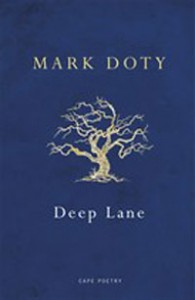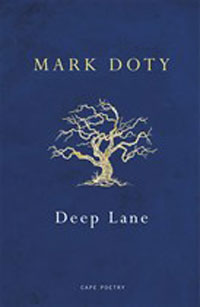Published in: September-October 2015 issue.
 Deep Lane
Deep Lane
by Mark Doty
W. Norton & Company. 96 pages, $25.95
DEEP LANE is Mark Doty’s eighth collection of poetry. In books as wide-ranging as My Alexandria (1993) and Turtle, Swan, and Bethlehem in Broad Daylight (1999), along with memoirs such as Heaven’s Coast (1996), Doty (who long ago was a professor of mine) has explored life, love, and loss, particularly during the AIDS era. His poems have always been thoughtful and reflective, but this collection has an autumnal, melancholy tone that’s new to his work.







